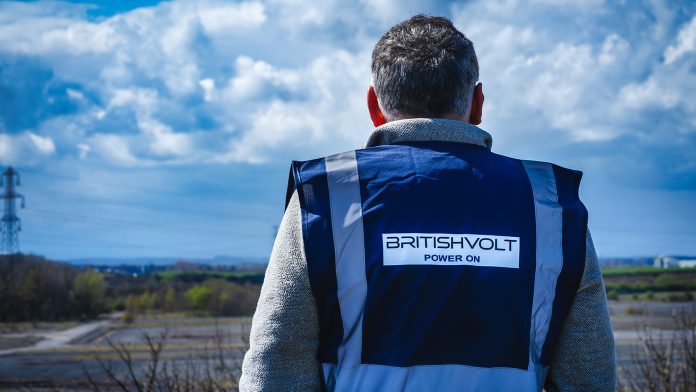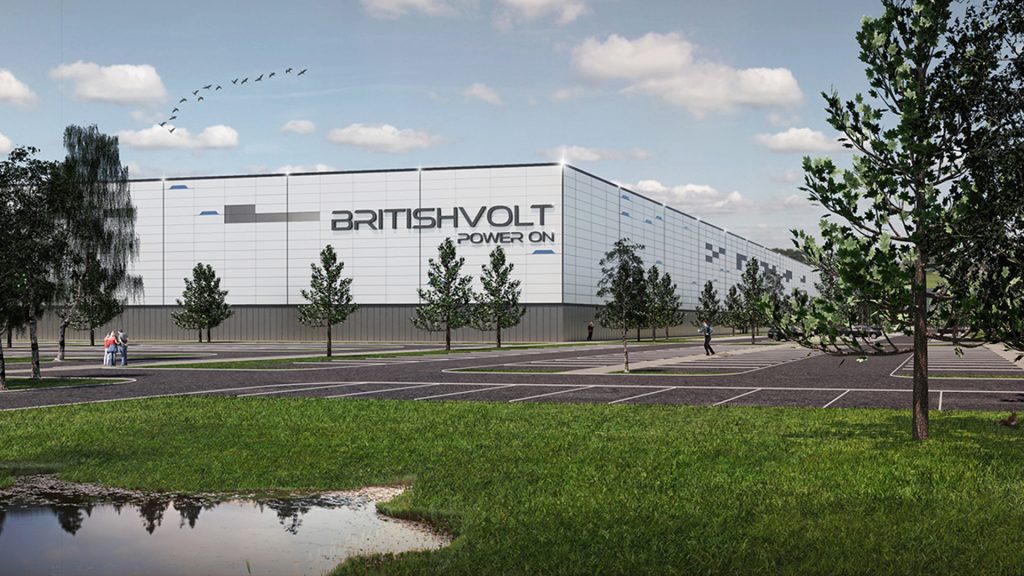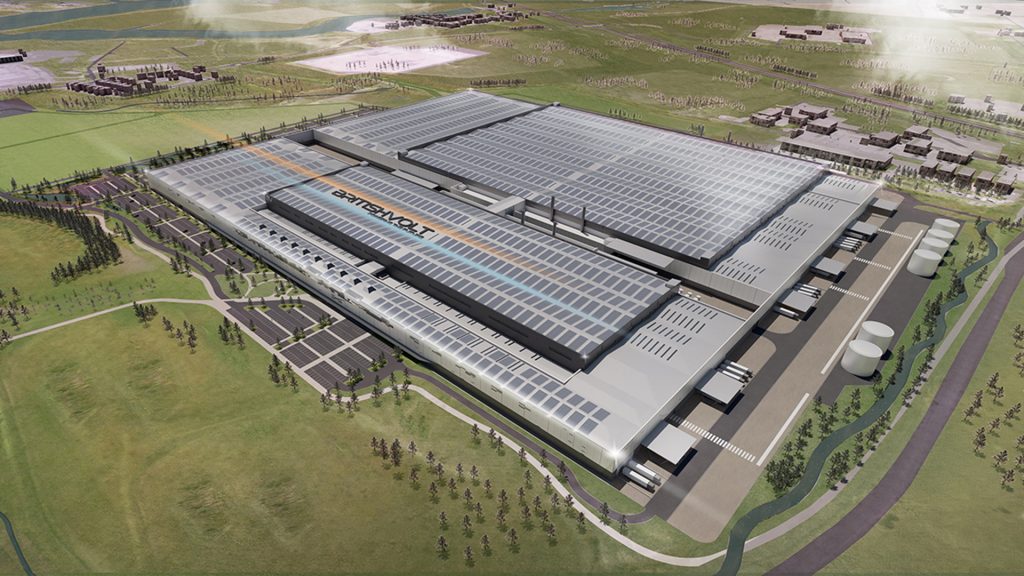Craig Woodburn, Head of ESG at Britishvolt, passionately details the organisation’s commitment to ESG principles and how they will add to the UK’s battery supply chain through recycling.
Britishvolt has come a long way in the past 12 months, developing the first UK Gigaplant site in Northumberland. Planning was approved rapidly, making us one of the very few Gigaplants across Europe to gain permission to build. Construction work commenced in September 2021.
As our CEO and Founder, Orral Nadjari, often says: “We do not hit the ground running; we hit it sprinting.” All of this has led to us becoming a unicorn – a privately held company valued at more than $1bn. However, perhaps even more remarkable than these feats is the company’s laser focus on its environmental, social, and governance agenda (ESG).
The importance of ESG principles and commitments
As a competent and well-versed ESG specialist having spent my career in the field, coming to a business that genuinely has ESG at its core is a real blessing, and it was one of the contributing factors to why I accepted the job. Britishvolt aims to redefine and reset benchmarks in ESG principles and commitments and how it tracks ESG metrics such as its carbon footprint, from the build of the factory to the sustainable, responsibly manufactured battery cells that come off the production line at the UK’s first full-scale Gigaplant.
Right now, what we are seeing is an actual tipping point, not just in the climate crisis but also in how we manage and allocate financial resources. ESG is no longer the buzzword. Now, it is the protocol, the standards by which we define ourselves to investors. To quantify and provide real evidence, data points are needed.
Britishvolt aims to map and document all carbon data points, from building facilities to manufacturing battery cells, in conjunction with its strategic partner, Circulor. We genuinely want to set new benchmarks and deliver data that can prove our ESG credentials rather than just make noise. With time against us to make the transition to a low carbon economy, we cannot cut corners. We want to make our EV battery cells using renewable generated electricity. What is the point in supporting this global carbon transition using coal-fired power stations to provide the electricity? We also need to make effective supply chains. To do this we must first be responsible, hold ourselves accountable, and then work with partners to act in the same way. Everything Britishvolt endeavours to do is enable and empower and have a positive, long-lasting legacy on humanity.
ESG is embedded in Britishvolt’s foundations. We take the long view and put the systems in place to ensure our bold claims match bold actions.
The goal is simple – to be the most responsible battery maker in the world with the lowest carbon impact, including suppliers and partners, and to drive industry standards beyond expectations. A successful energy transition will only be possible if we all work together.
The battery recycling industry
Recycling will be another core value for Britishvolt: not just recycling batteries at end-of-life but also making sure the raw materials used in the Gigaplant and the manufacturing processes are all based on maximum recyclability. Britishvolt wants to stimulate a new battery recycling industry in the United Kingdom so that the critical minerals harvested become part of the supply chain, with batteries designed from the outset with a virtuous re-use cycle. Components and materials will be recycled once, twice, or even three times. Nothing that could be wasted will be wasted.
Before you can recycle, you must produce battery cells as responsibly as possible. One way is to secure your supply chain and ensure that strategic partners are aligned with your own ESG vision and values. Britishvolt believes that actions speak louder than words, which our deal with natural resource company Glencore earlier in 2021 proved. The deal included a long-term, responsibly-sourced cobalt contract.
Britishvolt Founder and CEO, Orral Nadjari, said at the time: “This is a huge step in the right direction for Britishvolt, as we look to accelerate the transition to a low carbon society. By partnering with Glencore, we are locking in supply and de-risking the project.
“At the very heart of our business are our core ESG principles and commitments. Cobalt is a critical ingredient in electric vehicle batteries. Knowing that we are being supplied with responsibly produced cobalt signals to the market that we are living by our values. Our activity with Circulor, membership of the Fair Cobalt Alliance and use of other schemes and methods in the raw material supply chain will look to provide supply chain visibility and transparency to ensure acceptability both for our own and our customers’ exacting standards.
“We believe that to be a true pioneer in the battery cell manufacturing industry, Britishvolt must lead by example and ensure that its supply chains are as ethical, low carbon, and sustainable as is possible.”
An increase in employment opportunities
Employment availability is one of the most significant opportunities that Britishvolt brings, alongside the wider energy transition narrative and associated industry. For Britishvolt, improving and educating local communities are central pillars of our business plan, and the Britishvolt FutureGen Foundation amplifies this – an independent foundation created and supported by Britishvolt.
Championed by the battery cell developer’s inspirational Social Values Manager, Tracy Machnicki, the Education Hubs will facilitate training individuals for the pending energy transition, future-proofing employment prospects through education designed for long-term opportunities in the local area and wider community.
Machnicki said: “It is truly amazing to play my role in this part of Britishvolt’s journey in upskilling and empowering local communities through relevant training and education opportunities. Furthermore, we seek to inspire our young people and children to become tomorrow’s scientists, engineers, technologists, and manufacturers, as well as having an awareness of the renewables sector and the impact of climate change.
“The Foundation’s main aim is to truly turn people’s lives around by equipping them with the relevant skillsets required to power them ahead in careers in the local region. We are passionate about growing and nourishing the talent right here in the heart of Northumberland.”
There have been some people that have questioned if there will even be enough correctly skilled workers to fill the enormous wave of new jobs coming to the market. This is an opportunity, not a threat; there is demand for skilled people in businesses involved in decarbonisation and Britishvolt FutureGen Foundation aims to help provide those.
Dr Benjamin Silverstone, at one of our university partners WMG, University of Warwick, commented: “In the same way as the National Electrification Skills Framework, I think that these sorts of initiatives are critical. It is wrong to assume that, because the government have set the strategic direction through policy, industry and academia can sit back and wait to be told what to do. Initiatives like these provide a tangible response to policy and show government how we are going to respond and meet the mandate that has been set for us.”
He added that watching the industry take a proactive stance to building the UK skills capacity is wonderful and is one of the ways that: “We can actually ‘build back better’ by creating an industry base that invests in socially responsible projects. It is not just skills that are the future, it is the ability to act to bring them about and then bring them to bear that is what our future will be founded on.”
John McCabe, Chief Executive of the North East England Chamber of Commerce, said: “It is clear the transition of energy production to green technologies and the move to net zero will be the next great industrial revolution. Climate change and how we live sustainably will dominate the 21st century.
“The green revolution has been underway in the North East for some time and this region is at the forefront of energy transformation with a ready skills base and the technological expertise, whether that is in electric vehicles, new generation technologies or carbon capture. Development of these industries presents an incredible opportunity for the North East, with highly skilled jobs coming to the area both from inward investors and in the proven supply chain.”
But evangelism goes nowhere without structure, order, and governance. Embedding solid and transparent governance throughout the organisation creates high standards, best practice, and positive attitudes among stakeholders, staff, and suppliers. Empowering Britishvolt’s team with positive energy will help drive growth and profits and attract new talent. You cannot be the best in the world without the best people and the best governance.
ESG is not just a tick in a box or another empty acronym; it is a personal passion, belief, and theology. In Britishvolt’s view, anything less is simply not ESG. Reducing environmental impact, cherishing colleagues, and the highest standards of governance should be embedded in the culture of all companies. People and passion inspire ESG, and the people at Britishvolt look like they have enough desire to truly empower people in the all-important race to zero.
Please note, this article will also appear in the eighth edition of our quarterly publication.











